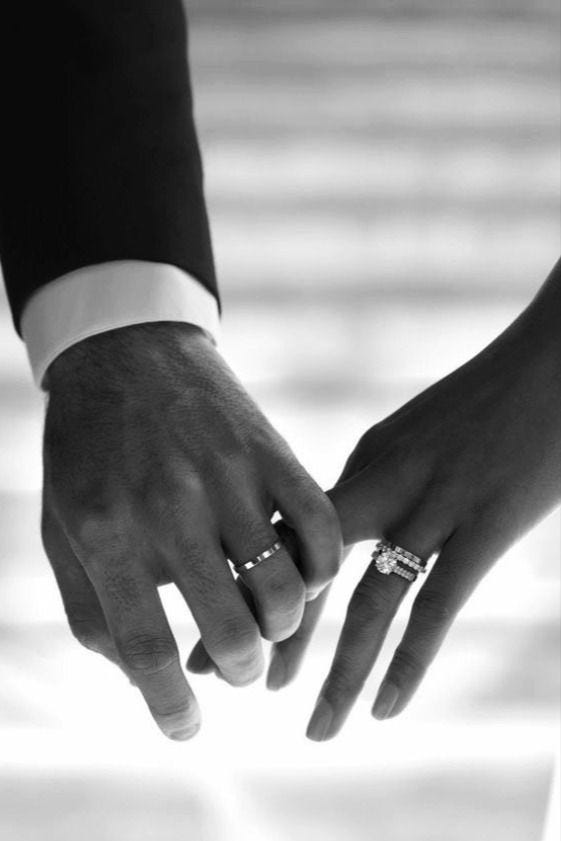One term we encounter frequently is “Marriage”. Throughout our upbringing, we’ve consistently witnessed the union of a man and a woman in matrimony. If you come from an intact family, it’s evident that your parents are married.
As a woman, as you reach a certain age, the concept of marriage becomes a constant refrain, to the extent that it might seem like the sole focus in life. Aunties would remind you of your age and the need to find a man. Mothers would remind you of their age and the urgent need to see their grandbabies and the first prayer that every adult you know mutters to you is laced around marriage. Marriage, Marriage, Marriage!
Although I am unmarried, I have had the opportunity to listen to, observe and engage in conversations with many married couples. Hence, my perspective.
For some individuals, marriage represents love, for others, it symbolizes security, and for some, it embodies both aspects. In certain situations, overwhelming romantic feelings are not deemed essential. Some prioritize love before marriage, while others prioritize love after marriage; for some, it’s primarily companionship, and for others, it’s a means to have children within a legitimate framework.
Where do you stand on this spectrum?
I’ve witnessed marriages built entirely on love. They both fell deeply in love before tying the knot, experiencing the spark in their eyes and the butterflies in their stomachs. They couldn’t resist each other, and even their disagreements felt like monumental challenges, like the world would crumble. These individuals marry because of the profound love they share, prioritizing their feelings above all else. Despite the saying that “Love doesn’t conquer all,” for this group of people, it truly does. Love is their top priority, and without it, they wouldn’t enter into marriage.
For certain individuals, marriage serves primarily as a means of attaining security. As long as the man exhibits qualities of a gentleman, is financially prosperous, generous, and capable of providing for the family, it meets their requirements. In their perspective, the quality of sexual intimacy takes a back seat as long as babies can be made. It’s common to hear them express a preference for a partner who can shoulder responsibilities. When a man meets these material expectations, demonstrates impeccable manners, and showcases responsibility, society often questions, “what else are you looking for?, what else do you want?” Similarly, if the woman is perceived as virtuous, godly, morally upright, and possesses desirable genetic traits, she is called a wife material and considered ideal. These marriages prioritize security as the foundation of the union, with both parties finding contentment in meeting each other’s expectations.
For certain individuals, the focal point of their marriage is sex. At times, sex can be so good that you misconceive your hormonal wants and desires to be your life aspirations. For them, resolving conflicts often involves making amends through sexual intimacy, and expressing joy is synonymous with sex. They view sex as a fundamental tool in their relationship, and for them, it defines the quality of a successful marriage.
The urge for companionship is often the driving force behind some people’s decision to get married. It stems from a sense of loneliness, where individuals feel so isolated that they simply crave someone to share their lives with. Once they find that person, it feels like enough, and they are ready to commit to marriage.
For some individuals, marriage is simply a contractual agreement—a method to finalize a deal. Whether they choose to stay or leave after the agreement is settled is entirely their decision.
Certain individuals, particularly men, may assert that love is not the most important consideration in a relationship. They believe that love can develop over time and tell you to prioritize their existing qualities that they believe make them suitable partners. Consequently, they perceive love as secondary. Some women align with this perspective and proceed with the marriage. However, the question remains: do you truly fall in love with them, or do you simply get used to them, adapt to their presence over time?
I’ve been asked by men about what I desire in a partner, but the reality is, even after outlining all the qualities, attraction remains paramount. I must feel a strong, undeniable attraction towards you. You could possess numerous wonderful qualities, yet if I’m not drawn to you, it won’t matter. If you then inquire about what a man can do to ignite attraction within me, the answer is simple: nothing. While attributes like physical attractiveness, wealth, and spirituality are important, they must complement and accompany the primary factor of attraction. Safe to say, my attraction to a man cannot be sustained without these aspects aligning.
Numerous marriages, encompassing the various perspectives I’ve outlined, have endured, while others have faltered. Couple A may find success with certain routines in their marriage, yet Couple B could adopt the same practices and experience immediate discord. The key takeaway is that what proves effective for one couple may not yield the same results for another. There’s no definitive right or wrong perspective to adopt. Choose what resonates with you, ensure it aligns with your partner’s outlook, and that’s what truly matters. It’s not necessary for your perspective to conform to societal norms. Just because it differs from the mainstream doesn’t render it inferior. Ultimately, prioritize what works best for you and your relationship.
Hopefully, when I am married, I will revisit this article to assess any shifts in my perspectives. But for now, let's roll (cruise) with this.





Great write up 👏👏💐